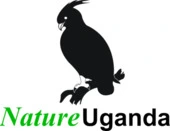NatureUganda restores wetlands and riverine in Kamwenge, Kyegegwa and Terego districts

The importance of wetlands cannot be overstated. From their ecological to socio-economic functions, wetlands are vital ecosystems known for their ecological roles such as regulating erosion, moderation of extreme flows, sediment traps, climate modification, soil formation, maintenance of water tables in surrounding lands and as centres of biodiversity and wildlife habitat. On the socio-economic front, they are sources of food, medicines, water supply, fisheries, dry-season grazing for livestock, nutrient and toxin retention, tourism; and they are also important for aesthetic, recreational and spiritual reasons.

Grey crowned cranes in Yelulu wetland
Despite their relevance, wetlands continue to be degraded globally due to numerous factors including population pressures, climate change and over exploitation. Not one to sit on and just watch the inevitable unfold, Nature Uganda under the “Restoration and Conservation of Degraded Fragile ecosystems for improved community livelihoods among the refugee and Host communities of West Nile Region and the Mid-Albertine Rift” project has embarked on a wetland and riverine restoration drive targeting wetlands of Rushango & Kajororo in Kamwenge; Kyakatwanga, Komuchwezi & Sweswe/Orukinga wetlands in Kyegegwa; Yelulu wetland catchment Area, R. Enyau and its tributaries in Terego District. In doing so, Nature Uganda has worked with the respective district local governments of Kamwenge, Kyegegwa and Terego districts to identify and select the above mentioned wetland and riverine sites with due diligence and justification made to ensure that the identified habitats are located within the recommended 15 km radius of refugee settlements. The influx of refugees in these areas catalyses rapid degradation and loss of wetlands due to unsustainable utilization from both the refugees and host communities. The impacts resulting from wetland degradation (such as flooding, crop damage, decline in provisioning services) can be detrimental and catastrophic and cause a decline in the social wellbeing of communities.

Terego District Official training community members on agroforestry practices
To achieve sustainable and impactful wetland restoration, NU is working with the District Local Governments, formed Community Conservation Areas (CCAs) and identified community groups. Nature Uganda has made efforts to raise awareness on the value of wetlands while providing reliable information on the biodiversity and social-economic importance of the wetlands to the community with over 400 local people sensitized. In WestNile, NU has trained over 150 community members in Agroforestry practices and supported the communities with over 30,000 agroforestry tree seedlings (including Mangifera indica, Citrus sinensis, Persea americana, Artocarpus heterophyllus, Milicia excelsa, Melia volkensi, Mahogany, Grevillea robusta and Vitellaria paradoxa). The training and support offered will help communities to adopt appropriate Sustainable Land Management(SLM), and Agroforestry (AF) technologies for increased Household income.
Related Posts
Recent Posts
Forests and wetlands degradation and it’s impacts on herpetofauna and other wildlife
Embracing Regenerative Tourism as the next step in Sustainable Tourism
Engaging Site-based Communities in Research and Conservation: The Locally-based Monitoring Initiative
All Categories
- Conservation and Development (27)
- Eco-tourism (3)
- Education and Awareness (10)
- Forests (7)
- Habitats (9)
- Nature walk (2)
- People (5)
- Projects (9)
- Public dialogue (6)
- Research and Monitoring (18)
- Sites (4)
- Species (10)
- Wetlands (12)
- Wildlife (6)




